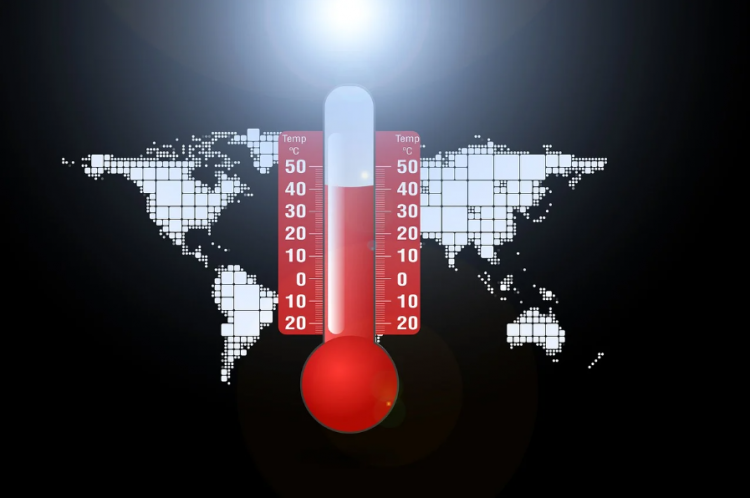Global oceans have continued their unprecedented streak of record-high temperatures, marking the 14th consecutive month of extreme heat anomalies, according to data from the Copernicus Climate Change Service. This disturbing trend, detailed in a report released by the European Commission agency, underscores the escalating impact of climate change on marine ecosystems and the broader environment.
The persistent rise in ocean temperatures is alarming climate researchers, as the vast majority-approximately 91%-of the extra heat trapped by greenhouse gas emissions is absorbed by the world's oceans. This gradual warming not only disrupts marine life but also influences weather patterns, intensifying storms and contributing to extreme weather events on land.
May 2023, in particular, saw global average surface temperatures of the oceans reach 1.52°C (2.73°F) above pre-industrial levels. This month marked the 12th consecutive month of record-setting global average temperatures, further highlighting the relentless pace of climate change. The North Atlantic Ocean Basin experienced particularly high temperatures, raising concerns about an active hurricane season.
Samantha Burgess, director of Copernicus, stated, "Until we reach net-zero global emissions, the climate will continue to warm, break records, and produce more extreme weather events." She emphasized the need for immediate action, warning that if greenhouse gas emissions continue unabated, the extreme conditions of 2023/4 will soon be considered mild.
Adding to the urgency, the U.N. Secretary-General António Guterres, speaking on World Environment Day, highlighted the rapid progression towards a climate catastrophe. "We need an exit ramp off the highway to climate hell," he urged, calling for a 30% reduction in global fossil fuel production and use by 2030. Guterres stressed that the battle to limit global warming to 1.5°C-a critical target of the 2015 Paris Agreement-will be won or lost in this decade.
The World Meteorological Organization (WMO) supported these dire warnings with their own findings. They reported an 80% chance that at least one of the next five years will temporarily exceed the 1.5°C threshold above pre-industrial levels. This is a stark increase from a 66% chance reported last year, illustrating the accelerating pace of global warming.
Despite international agreements and a significant expansion in renewable energy sources, carbon dioxide emissions from fossil fuels reached a record high last year. The reliance on coal, oil, and gas continues to dominate the global energy mix, contributing to the upward trend in global temperatures.
Ko Barrett, WMO Deputy Secretary-General, highlighted the severity of the situation, stating, "We must urgently do more to cut greenhouse gas emissions, or we will pay an increasingly heavy price in economic costs, lives affected by more extreme weather, and damage to the environment." Barrett also noted that even the cooling effects of the La Niña weather phenomenon were only minor interruptions in the overall warming trend.
In addition to rising temperatures, scientists have observed a steep decline in Antarctic sea ice, which further exacerbates global climate instability. Carlo Buontempo, Director of Copernicus, remarked, "We have not seen anything like this in the last several thousand years," indicating the unprecedented nature of the current climate conditions.
Guterres also targeted fossil fuel companies, referring to them as "Godfathers of climate chaos" who benefit from substantial taxpayer-funded subsidies. He called for a global ban on fossil fuel advertising, drawing parallels with restrictions on harmful substances like tobacco. This move, he argued, would reduce the influence of these companies and promote a more sustainable energy future.






